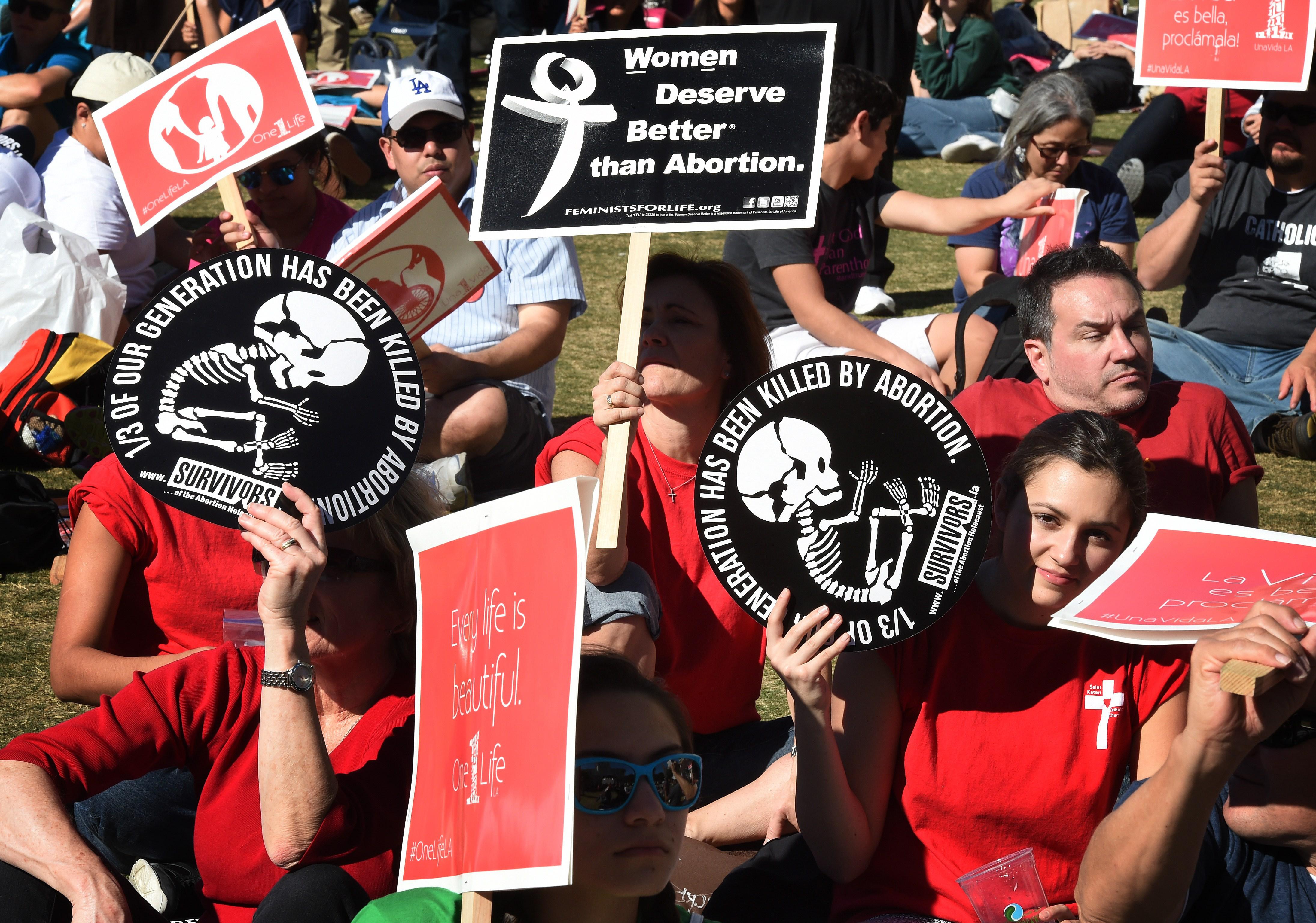Abortion-rights advocates may finally have found a way to regulate Crisis Pregnancy Centers in a way that passes First Amendment muster. The Ninth Circuit has decided to let California’s Reproductive FACT (Freedom, Accountability, Comprehensive Care, and Transparency) Act go into effect on the first of the year, despite a pending appeal. The California law, as Slate’s Dahlia Lithwick has written, “was reverse-engineered to avoid some of the First Amendment pitfalls” that doomed similar efforts in Austin, Baltimore, and New York City. The Ninth Circuit’s refusal to block the law is a sign that its authors may have succeeded.
Crisis Pregnancy Centers—of which there are roughly 4,000 in the U.S., outnumbering abortion clinics by about 3-to-1—exist to prevent women from getting abortions. They advertise to women trying to figure out what to do about a pregnancy. The majority, according to NARAL Pro-Choice America, present themselves as neutral on the issue of abortion; some even pose as abortion providers. Once they get women through the door, however, they provide heavily anti-abortion counseling—which often relies on scientifically discredited warnings that abortion can cause breast cancer, infertility, or suicide—as well as information on adoption and financial assistance for new parents. They do not provide information on where to terminate a pregnancy, even to women who come explicitly seeking it. And they often hide the fact that they have no medical professionals on staff, which can endanger women who believe what they’re receiving to be legitimate prenatal care.
Despite these tactics, CPCs are notoriously difficult to regulate. As Lithwick puts it, “The U.S. Supreme Court has long been signaling an almost infinite tolerance for claims that religious freedom and the freedom of speech—especially when combined—can be a sprawling and effective means of achieving whatever ends you may desire.” When CPCs in Baltimore, for example, were required to post signs in their waiting rooms notifying patients that they didn’t provide abortions or abortion referrals, or that they didn’t have any licensed medical providers on staff, they got a court to strike down the law by arguing that they were being targeted for their religious views.
Free-speech enthusiasts who are inclined to back CPCs on those grounds should consider that the First Amendment rights of abortion providers are also under fire: Twenty-five states require doctors to administer medically unnecessary ultrasounds to women seeking abortions, and many force them to convey some of the same pseudoscientific disincentives that CPCs deliver.
As Slate’s Mark Joseph Stern has written, the regulation of medical professionals’ speech is, in general, a jumbled mess. The Supreme Court has largely avoided addressing this issue, resulting in a system where “the courts—relatively free from any clear constitutional lodestar—upheld bans on speech they disliked and struck down bans on speech they favored.” Stern advocates a standard of “intermediate scrutiny,” under which “a restriction on medical speech is valid if it ‘directly advances the state’s substantial interest’ in protecting patients and is ‘no more extensive than necessary.’”
California’s FACT Act was drafted by Democratic Attorney General Kamala Harris and her office with exactly this kind of narrow tailoring in mind. For that reason, the law doesn’t explicitly target CPCs, but rather creates new, blanket requirements: First, that any pregnancy-related provider in the state lacking a medical license must disclose that fact to patients; and second, that any reproductive health clinic, including any CPC, must notify patients about the state’s financial assistance for contraception, abortion, and prenatal care. Erwin Chemerinsky, dean of the UC Irvine School of Law, has written in the LA Times about why these mandates are in line with the First Amendment:
[T]he Reproductive FACT Act does not violate the free exercise clause because it applies to all healthcare facilities in California, and the lawmakers’ chief goal was ensuring that women are adequately informed of the benefits available to them. They weren’t picking on religious people. Nor should the crisis pregnancy centers succeed in their claim that the need to post a notice amounts to unlawfully compelled speech. Healthcare professionals are routinely required to inform patients of the range of treatment options available to them and of possible side effects to medical procedures. Whether the patient has a heart problem, wants plastic surgery or is considering how to handle an unintended pregnancy should make no difference. There is a constitutional right to abortion, after all.
The federal judge who ruled on the FACT Act in December agreed that it was lawful. “The disclosures do not include language endorsing or recommending such services,” U.S. District Judge Jeffery White wrote. “Rather, the mandated notice only notifies consumers of the existence of state-funded options.” Now, the Ninth Circuit has indicated that it’s likely to rule the same way—though the plaintiffs can still appeal to the Supreme Court. If the law does survive these legal challenges, it may provide a model for other states looking to regulate Crisis Pregnancy Centers. For now, at least in California, women who find their way into a pregnancy center will receive a little bit more information with which to make their own decisions.
